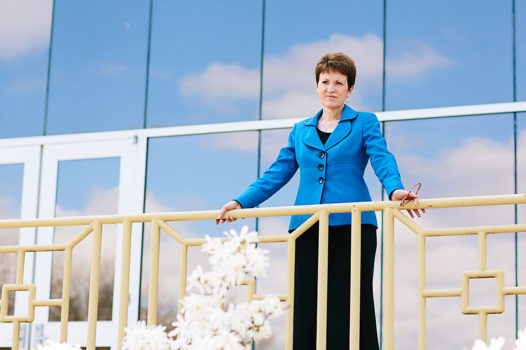By Burton Brewster (’23)
The search for a new president has been underway since mid-November, but we are still some ways away from knowing who the successor to President Mullen will be. So instead of speculating on the future, let’s look back at how previous presidents were selected.
Houghton was founded in 1883 by Willard J. Houghton. However, Willard Houghton was not the first president. In fact, Houghton lacked a president for its first 25 years. During this time, Houghton Seminary (not a college yet) was run by principals. According to “The History of Church-Controlled Colleges in the Wesleyan Methodist Church,” Houghton had six principals. The longest serving principal staying in office for twelve years, and the shortest serving one staying only a few days. Professor James S. Luckey was one of these principals.
It is well known that Professor Luckey was the first president of Houghton College, but he was not the first choice. Professor H. W. McDowell was originally elected to be principal in 1908, however, “his natural modesty and distrust of his own ability” caused him to seek a replacement. So, he reached out to Professor Luckey to take his place.
Luckey had served as principal in the past before leaving to pursue further education. Regardless, Luckey accepted McDowell’s offer, but with a heavy heart since he was in the middle of learning at Harvard. As he explained, “One of the hardest things I ever had to do in my life was to give up that second year in Harvard.”
Luckey’s sacrifice was not in vain. He transformed Houghton Seminary into Houghton College, constructed many buildings for students, and went into history as our first president. Luckey served for the next 29 years, up until the day he died.
In 1937, with the passing of Luckey, the college ran into a dilemma with choosing a successor. As explained in “Deo Volente: A Biography of Stephen W. Paine,” two candidates stood out as ideal presidents: Prof. Claude Ries, the Greek and Bible Professor, and Prof. Stephen Paine, the Academic Dean. Paine was only 28 at the time and was receiving job offers from other colleges. So, it seemed like Prof. Ries was the clear candidate. However, in a shocking turn of events, Ries stepped down because he wanted to continue teaching and preaching. At first, the committee in charge was skeptical of Paine. But, with the support of the students and faculty, they convinced the committee to accept Paine as president. As a result, Paine became the youngest college president in United States history at the time (the current record is held by President Leon Botstein of Bard College, NY who became president at 23).
Paine served for longer than any other president in the college’s history, 35 years in total. Then, in 1972, he was forced into retirement due to Parkinson’s disease. As such, a committee was formed to find a replacement. Within 24 hours of deciding on candidates, they offered the job to Dr. Wilbur Dayton. This made him the quickest chosen president in college history. Ironically, he was also the quickest resigning president. After 4 years, he moved to Jackson, Mississippi to teach and left the campus with the quest of finding another president.
Little is known about how President Daniel Chamberlain was chosen after Dayton. According to past issues of The Houghton Star, he was accepted to the campus in September of 1976 and immediately made himself known as a man who loved sports and wanted the various elements of college life to compliment each other instead of compete with one another.
In February 2005 he announced his retirement during a chapel service. Interestingly, the process of finding a replacement president had been in the works since 2000 when the The Presidential Search Committee was formed to replace the previous committee which consisted of faculty, trustees, and students.
And that brings us to our current outgoing leader, President Mullen. “My journey to the presidency was not at all the typical one—nor an easy one,” she explained in an interview, “I viewed my primary calling in Christian higher education to be in the classroom as a professor. I never intended to become an administrator. The lesson I learned from this is that sometimes God’s calling is made more clear looking back than looking forward.”
In the months that followed, Mullen worked with Chamberlain to ensure a smooth transition. “He was always available for questions and advice and counsel after I came into the office.” she said. “I want to be that kind of support for the person who comes after me—always available, but never in the way!”
The current selection committee is not available for questioning, however, the process seems to be going smoothly. According to the Houghton College website, the new president will be announced this March or April. ★

